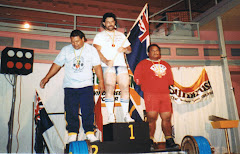 Formed Outcome Model. This is a typical goal setting pattern with specific criteria that needs to be present for you to achieve your goals, or to coach others in achieving there's.
Formed Outcome Model. This is a typical goal setting pattern with specific criteria that needs to be present for you to achieve your goals, or to coach others in achieving there's.What I've found is there are many techniques that ensure your success in goal setting that aren't specifically addressed in the Well formed outcome model so I thought you'd like to have some additional proven tips, to maximise you resultsBefore I do that we need to have brief look at the Well formed outcome pattern.
Here are the 8 basic steps (not including sub-headings) of the Well Formed Outcome Model:
1) State the outcome in positive terms
2) State the outcome in sensory based terms
3) Specify the outcome so it is compelling
4) Run an ecology check on the outcome
5) Is it self initiated and maintained?
6) State the specific context of the outcome
7) State the resources needed for you to achieve it
8) What evidence will you have to know you have achieved your goal?
What's missing?
Quite a lot actually! And really important stuff too!
Here are 10 critical points for you to ensure the likelyhood of you achieving your goal and will greatly enhance the Well Formed Outcome Model. They are in no particular order and supported by research. (email me if you want the details)
Accountability:
Who will you ask to hold you accountable for you to achieve the goal? Who will the person be that will keep you on track throughout the process? Who will you tell what it is that you are wanting to achieve?
Planning:
What are the specific steps you will take and the specific time frames for each of these steps? Include all the necessary resources and align them with the timeline of the outcome you are wanting to achieve.
Support:
Who will support you through the stages of the goal?
Who will offer you emotional support through the steps along the way?
What specific support do you require from others?
Rewards:
What rewards will you recieve at specific stages of the journey to achieving your goal? Ensure that the reward does not conflict with your long term goal i.e. spending money when your goal is to save money or eating forbidden food when you are wanting to shed weight!
Problem & Solutions:
What will stop you from achieveing your goal and what 2 solutions do you have to overcome each of them? Be fully prepared for worse case scenario. Know what will slow you down or attempt to make you fail and have a clear strategy to overcome each of them.
Visualisation:
Visualise the effort, commitment and dedication required of you at each step of the plan you have formulated. Visualise yourself overcoming each difficulty artehr than you achieving the end result. 80% of the visualisation process is to be on effort and overcoming and 20% on the end result.
WHY Power:
Make and extensive list of WHY you want to achieve this goal. Ask the yoruself why - a dozen or more times and bullet point the 3 main reasons why you want the goal. Remember: when you know WHY you are doing it you WILL do it!
Mindfulness:
Be mindful, on a regular basis, of WHY you want to make the effort required of you. Take a brief moment through your day to refelect on why you are doing what you are doing.
Journal:
Write a progress record or a blog of how you are doing. Write in it encouraging comments to keep you focused when the going gets tough. Remember to record your successes and how you have overcome all your setbacks.
Pict-o-Gram:
Make a mindmap, poster or pict-o-gram of your goal. Cut out pictures make it colourful and have it in a plce that you will see regularly.

There you go, 10 points that will greatly enhance your chances of achieveing your goal. Weave each of them into your usual Well Formed Outcome Model and you will maximise your own chances and those you coach, in achieving their goals!
Simple, aye?
I know this list is not complete and there are other key points that can be integrated. Use these ones for now and see how it goes...

















































No comments:
Post a Comment